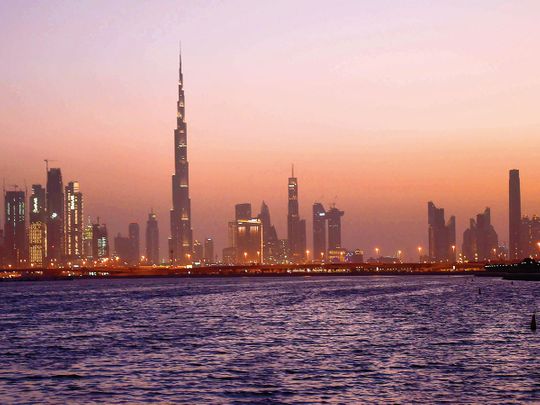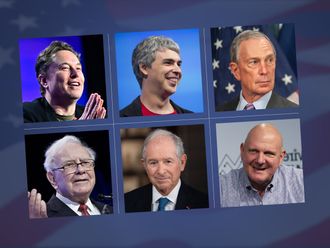
After nearly all of Gulf’s stock markets were made accessible to foreign direct investment, most of them were upgraded to ‘emerging market’ status, which in turn helped them attract sizeable investments. Some of them have since moved to address another important issue to attract further foreign capital, advanced technology and high-end technical expertise.
This year, both the UAE and Saudi Arabia have taken steps towards providing a stable environment for foreign investors through long-term or privilege residency schemes, which allows investors and their family members to enjoy a secured stay within the limits set out by the schemes.
The two systems have focused not only on attracting capital, but also place a premium on skills needed by modern economies.
For decades, GCC countries have suffered from significant outflows of remittances that reached $120 billion (Dh440.76 billion) last year, according to the International Monetary Fund (IMF). Despite the flexibility in investment systems, some analysts considered GCC economies to be less competitive in terms of attracting foreign capital.
This was partly because of certain restrictions on the movement of investors, who may thus find more favourable opportunities in many other regions. This affected the balance of payments and the size of Gulf states’ gross national product (GNP).
With the UAE Cabinet approving the decision to grant permanent residency, the ‘gold card’ will be granted to more than 6,800 investors, with investments totalling Dh100 billion. This will help them stay longer and help keep their investments in the UAE.
Make no mistake, this move will attract large amounts of investment and contribute to boost economic conditions, in particular the non-oil sector.
The long-term residency scheme grants five- to 10-year visas to investors, entrepreneurs, and people of special talents, and free them from the need to have sponsors while allowing 100 per cent ownership of businesses.
In Saudi Arabia, the new residency plan, which is similar to the green card announced in 2016, is expected to be a magnet for distinctive capital, competencies, and high-net-worth individuals, but with controls.
The scheme will fight the shadow economy and the high-level of commercial concealment, according to the Saudi minister of trade. This system is much likely to benefit more than three million people, who generate more than $10 billion.
The two systems have focused not only on attracting capital, but also place a premium on skills needed by modern economies. Each system grants privileges to professionals and the highly skilled in various fields, thanks to their significant contribution to creativity.
On the other hand, the new residency schemes will enhance the competitiveness of UAE and Saudi markets, regionally and globally. It has come in line with both sides’ vision and their joint coordination for the future.
Accordingly, both countries will see non-oil sector growth rates improve, which would boost the sector’s contribution to GDP. It will also accelerate the pace of economic diversification and further stimulate the private sector to increase investments. This will help train and qualify national competencies, by benefiting from the existence of skilled international workforces across the GCC.
In view of the expected positive outcomes, it is necessary to overcome some concerns related to the demographic composition and employment opportunities. These opportunities will increase as more investments flow in. It’s a fact that there are no absolute positives or negatives.
Repercussions associated with the practical implementation of this approach are likely, but this is quite natural. So, expect to see more practical steps to deal with such ramifications in other Gulf states.
Eventually, the flexible residency scheme will lead to positive outcomes on the general economic situation and boost competitiveness and economic diversification.
Dr Mohammad Al Asoomi is a UAE economic expert and specialist in economic and social development in the UAE and the GCC countries.












